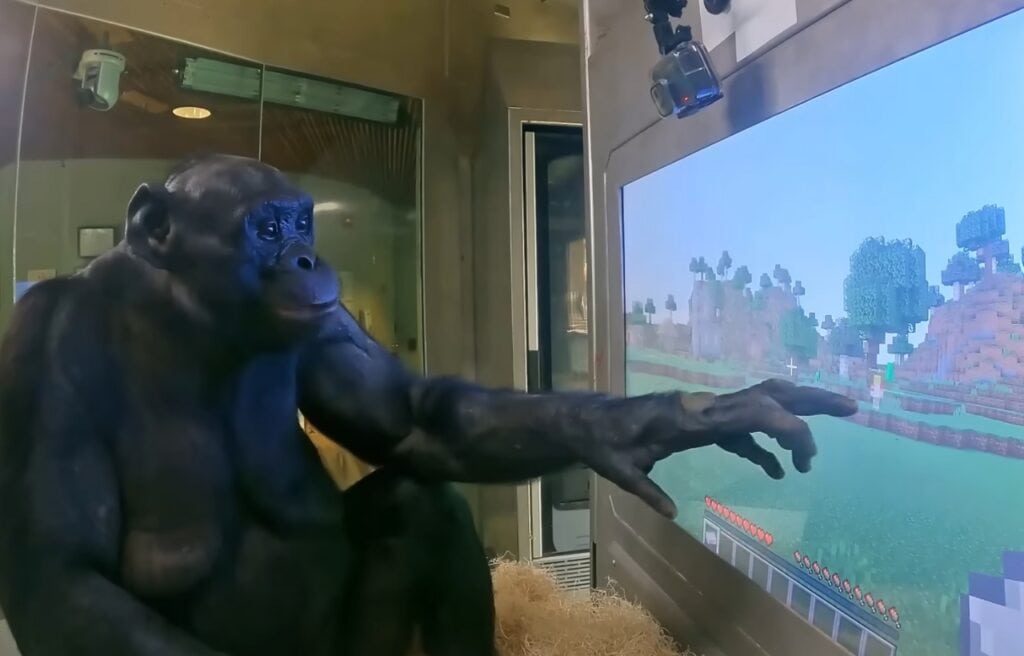
In the field of animal smarts, one bonobo really stands out. That’s Kanzi, who lives at the Ape Initiative in Des Moines.
He knows an impressive amount of English words—over 3,000—which makes us rethink what we believed animals could understand about human language.
Kanzi has even beaten the popular sandbox video game, Minecraft, which shows off how flexible his thinking is and how good he is at solving problems.
A Prodigy Among Primates
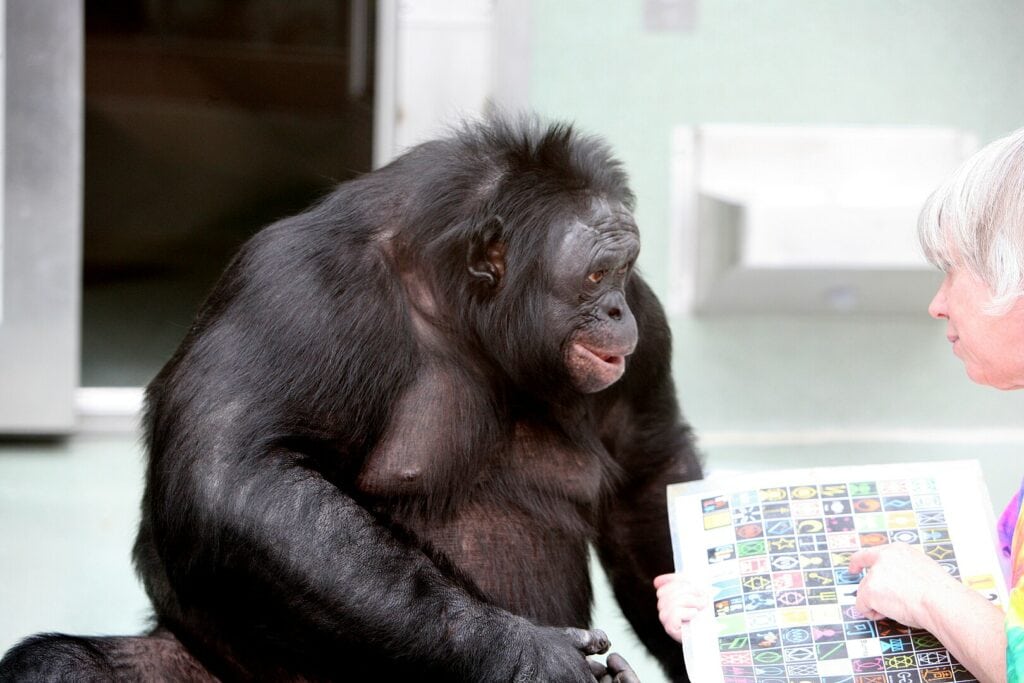
William H. Calvin, PhD – Own work / CC BY-SA 4.0 / Wikimedia commons
Kanzi was born in 1980 at the Yerkes Field Station at Emory University and quickly demonstrated that he was no ordinary ape.
He astonished researchers by naturally picking up the use of lexigrams—symbols used to represent words—without formal training, a skill originally intended for his adoptive mother.
Now, Kanzi understands an impressive 3,000 spoken words and can respond with lexigrams, showcasing a level of linguistic ability that rivals that of human toddlers.
Over the years, the balding and paunchy bonobo has debunked myths about primate intelligence.
Whether it’s creating tools, starting fires to roast marshmallows, or even communicating complex requests, Kanzi’s capabilities continue to amaze both scientists and the public alike.
Minecraft Master Kanzi
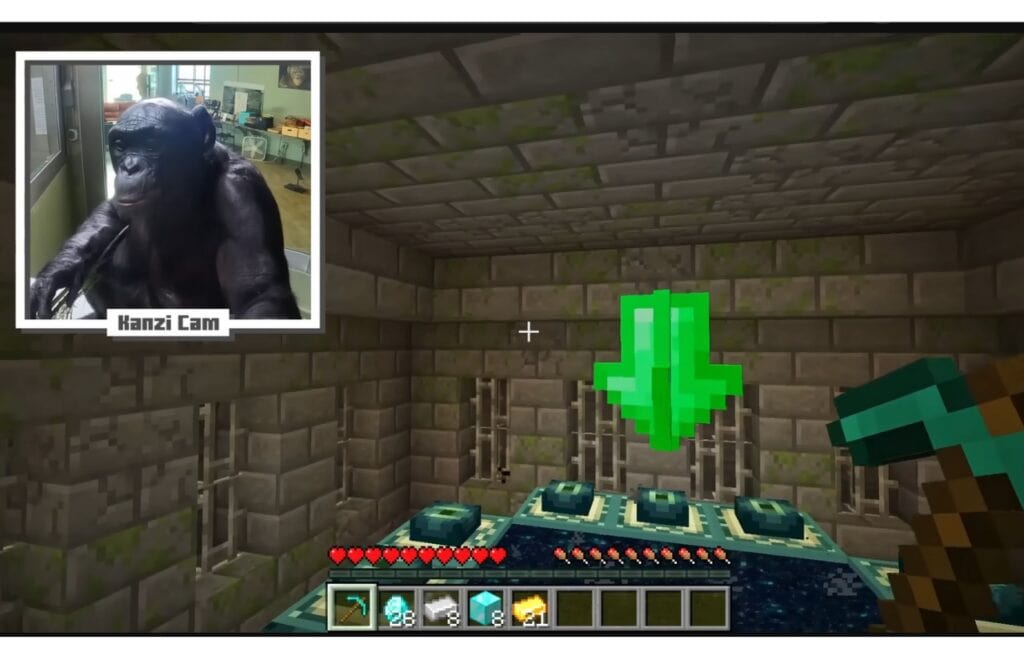
Enter Minecraft. This block-building game is a hit because it’s all about exploring and figuring things out.
Kanzi got into the game thanks to ChrisDaCow, a YouTuber, and Dr. Jared Taglialatela, who’s the head of the Ape Initiative where Kanzi lives. They set up Minecraft on a touchscreen that Kanzi likes to use for other brain games.
Before they got started, Kanzi was already signing and using his symbols to say he was ready to play. In the game, Kanzi touched the middle of the screen to walk and hit the edges to look around.
But he didn’t just wander around aimlessly—he really got into it and even beat the toughest part of the game, the Ender Dragon.
Teaching Kanzi Minecraft Skills
The team had to make some modifications to Kanzi’s controls because he was so enthusiastic that he ended up breaking the game!
They also needed to create environments that would allow him to master the skills of collecting and breaking blocks, which are critical to success in Minecraft.
For instance, while working in a virtual cave made of diamond blocks, Kanzi had to break through walls to advance. This taught him persistence and refined his motor skills on the touchscreen.
Despite initial challenges, like getting stuck in corners, Kanzi eventually navigated the cave with little to no help, proving he’d mastered these skills.
Learning and Rewards
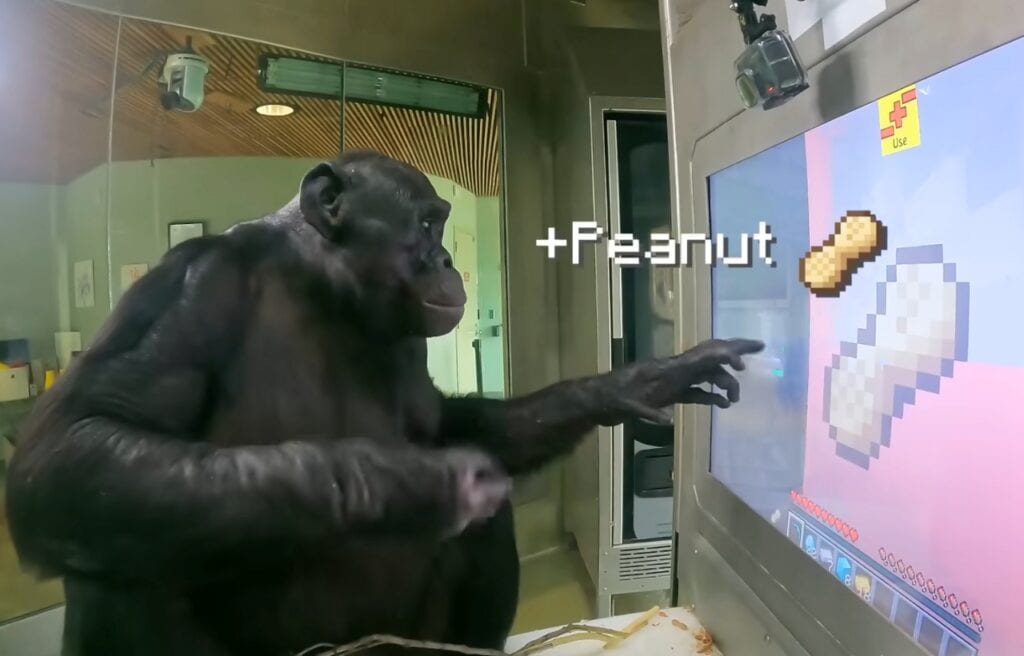
Kanzi’s learning was reinforced with his favorite snacks. Each time he accomplished a task in the game, like collecting an item, he received a treat. This not only helped teach him the basic controls but was also part of the fun for him.
Dr. Jared observed that Kanzi seemed to enjoy the game, and importantly, he enjoyed the reactions from the humans around him as he played.
The team was keen to highlight that while Kanzi received rewards like peanuts and grapes for participating, he was always free to play or stop playing as he wished.
The game was just another exciting activity in his day—not something he had to do, but something he could choose to do for fun.
Stepping Up for Bonobos
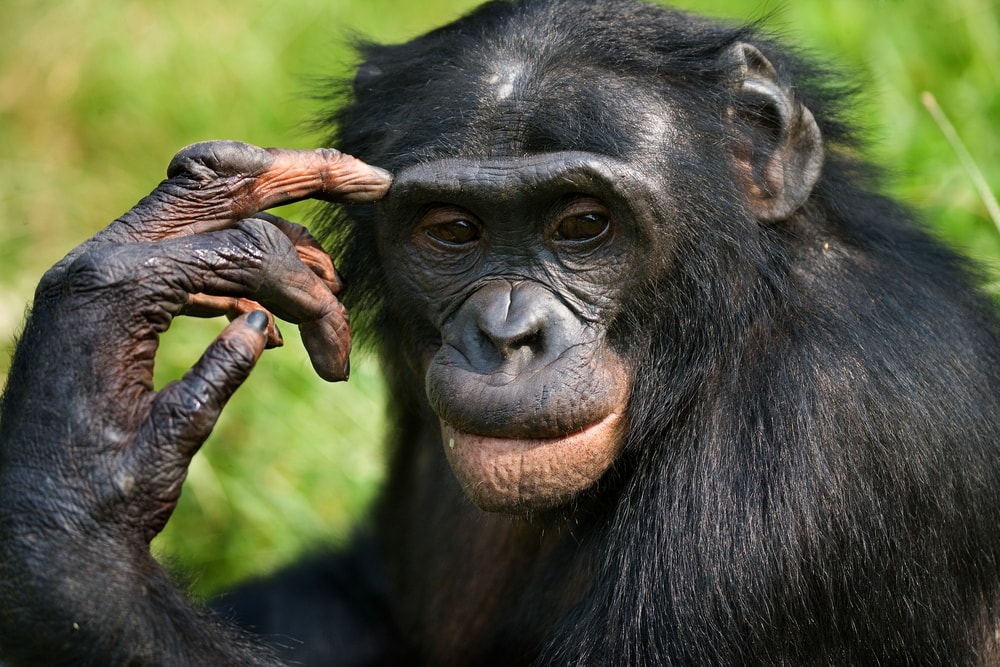
Kanzi beating Minecraft isn’t just for laughs or likes. It’s a big flashing sign pointing to how smart bonobos and other animals can be. It makes you think about them in a whole new way and shows why we should be looking out for them.
Bonobos like Kanzi are in a bit of a tight spot. Their home is only in one place—the Congo’s rainforests—and there aren’t a whole lot of them left. Kanzi’s Minecraft win is cool, but more importantly, it shines a spotlight on why we need to protect these animals.
Every time someone watches Kanzi play, buys a T-shirt, or talks about his story, it helps the place he calls home. And that’s a win for all bonobos, not just Kanzi.
Changing How We See Animals
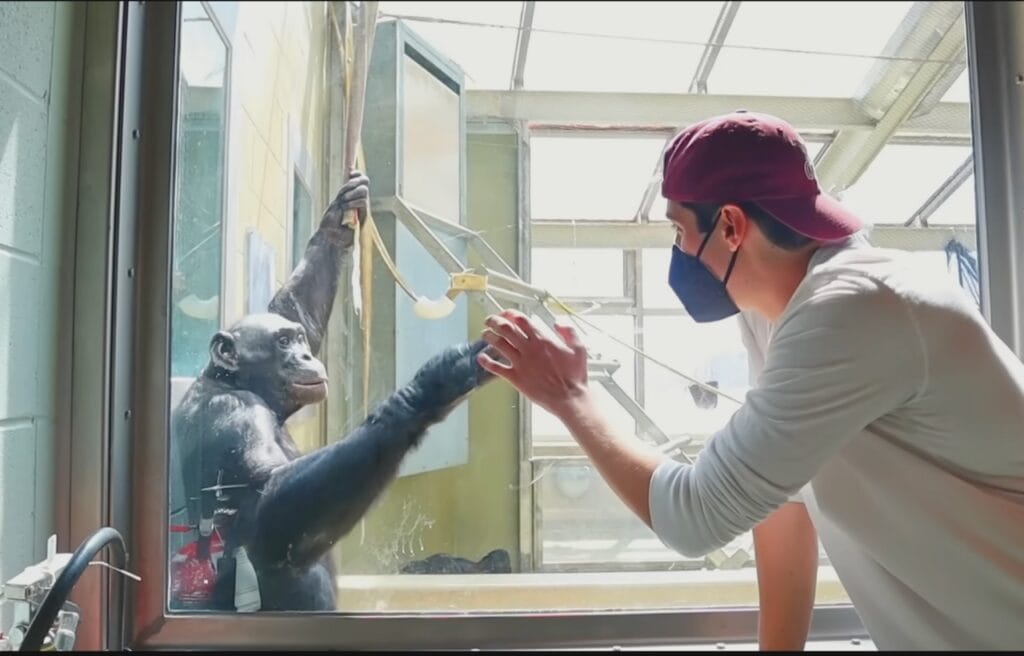
Source: Youtube- ChrisDaCow
Kanzi doing well in Minecraft is a game-changer. It’s showing the world that animals can be super smart.
Seeing what Kanzi can do doesn’t just teach us about bonobos—it’s a reminder that animals can think and learn in ways we never imagined. The more we understand this, the more we can help them thrive, and that’s a real victory for everyone.







